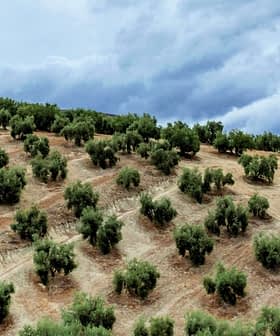Spain’s powerful food wholesalers have hit back at claims that they are causing the country’s olive oil price crisis.
Growers and producers blame these distribution groups for allowing supermarkets to under-price olive oil as a consumer bait, undermining its prestige and worsening the sector’s already precarious situation.
But in an article in the newspaper Diario de Sevilla, the distributors say the price tension is not their fault, though they do admit that olive oil – a staple in Spanish kitchens – lends itself to price wars.
Retail experts say the average shopper does not look at the cost of every product they put in their trolley. They have an idea of the likely total at the checkout but only know individual prices for a few of their buys. In Spain, one such product is olive oil – consumers notice the price per liter.
It is therefore unsurprising, reports local journalist Tomás Monago, that olive oil is being widely used as a loss leader, especially at a time of waning consumer spending.
The National Association of Edible Oil Manufacturers, Packers and Refiners (Anierac) highlights that such repeated selling at a loss is prohibited in Spain. Anierac president Pedro Rubio said that setting aside the issue of loopholes in this law, it was simply common sense that the price war could not continue.
But associations representing the distribution sector (ACES, Asedas and Anged) flatly deny that they are the culprits.

Another distribution representative said that the price squeeze had helped Spain absorb extremely high levels of domestic production in recent years.
And Ignacio García Magarzo, director general of Asedas (a Spanish association for distributors and supermarkets), said that it was the consumers who were driving down prices. “What used to determine product prices were not the products themselves but what the customer was willing to pay, and perhaps customers have moved to cheaper brands and found there’s little real difference.”
In recent weeks, and with the mediation of Spain’s Ministry of Environment, various members of the industry have met to discuss reforms including a code of conduct and a contract approval system.
Jósé Vázquez, from the Asaja agricultural association, says most producers are under-capitalized and averaging a loss of €750 ($1043) for every 1500kg of olive oil they produce.
March 18 has been set as a day of protests by grower, producer and cooperative associations in their push for fairer prices and for the European Commission to implement private warehousing provisions.
Mr. del Pino said the best solution to the the industry’s woes was differentiation, which the distribution sector was already pursuing. This would mean developing a market like that for wine, where consumers valued quality and were accustomed to a diversity of variety and origin.
A producer in Andalusia said he felt that growing the export market was the main hope as Spanish consumers were not very discerning. “People know very little about the taste of different varieties, such as Picual, Arbequina and Hojiblanca.”








